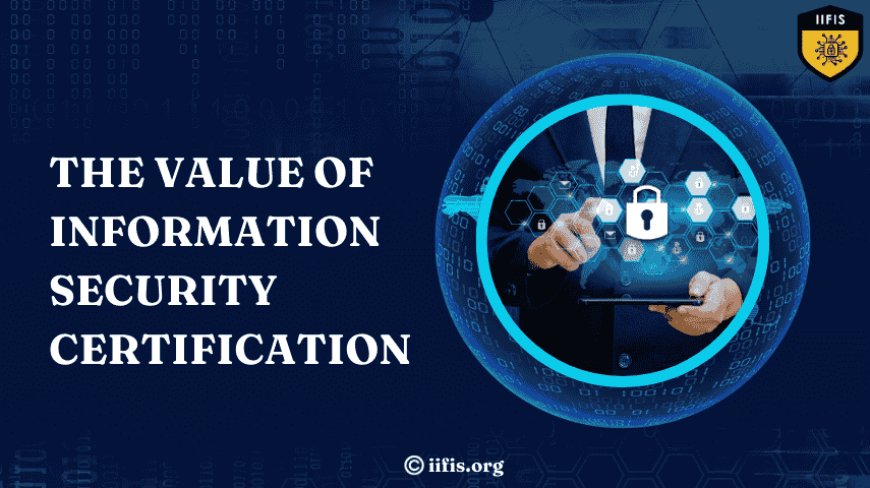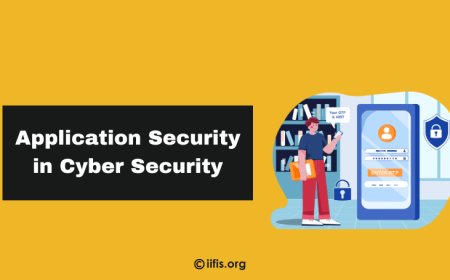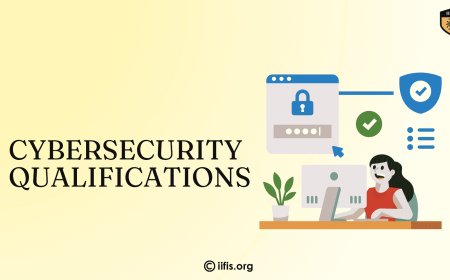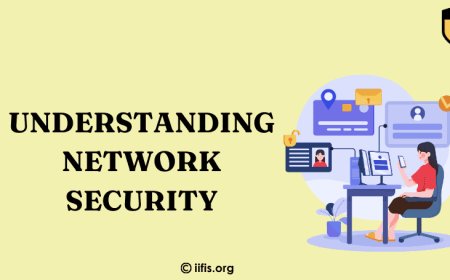The Value of Information Security Certification
Certifications validate expertise, enhance careers, and empower professionals to protect data, ensuring compliance, trust, and staying ahead in cybersecurity

In an era where data violations and cyber threats are increasingly common, having a solid foundation in information security is more important than ever. For those looking to enter or advance in the field, an information security certification can be a game-changer. These certifications not only provide essential knowledge and practical skills but also help you stand out to employers in a competitive job market. From understanding the basics of cybersecurity to mastering complex risk management strategies, a certification can open doors to higher roles, boost your credibility, and show your commitment to protecting sensitive information. This blog explores why investing in an information security certification is a smart choice for building a rewarding career in cybersecurity.
What Are Information Security Certifications?
Information security certifications are credentials awarded to individuals who have demonstrated knowledge and skills in protecting digital information from threats like hacking, malware, and dataViolations. These certifications are designed to provide a structured path for learning key aspects of cybersecurity and are often required or highly recommended by employers in the field.
Popular Information Security Certifications
-
Offered by (ISC)², CISSP is an advanced certification that covers a broad range of security topics, including risk management, network security, and cryptography. It's highly valued for management and leadership roles in cybersecurity.
-
CEH (Certified Ethical Hacker)
-
Provided by EC-Council, CEH focuses on teaching techniques used by hackers to penetrate networks and systems. This certification is ideal for those interested in identifying and fixing vulnerabilities before they can be exploited.
-
CISM (Certified Information Security Manager)
-
Administered by ISACA, CISM is aimed at professionals responsible for managing and overseeing an organization’s information security program. It emphasizes risk management and governance.
-
CompTIA Security+
-
Offered by CompTIA, Security+ is an entry-level certification covering the basics of network security, threats, and vulnerabilities. It’s a popular choice for those new to the field or early in their security career.
Certification Bodies and Their Credibility
Certifications are provided by reputable organizations, each specializing in areas of cybersecurity. Organizations like (ISC)², EC-Council, ISACA, and CompTIA are well-regarded for their thorough and standardized testing, ensuring that certified professionals have the knowledge and skills needed for the field. Their established reputation makes these certifications widely recognized and trusted by employers worldwide.
General vs. Specialized Certifications
-
General Certifications: Broad certifications like CISSP and CompTIA Security+ cover a wide range of security topics and are ideal for building a foundational understanding or taking on management roles in security.
-
Specialized Certifications: Certifications such as CEH focus on specific areas like ethical hacking, while others, like Certified Cloud Security Professional (CCSP), target cloud security. These are valuable for professionals looking to focus on a particular aspect of cybersecurity.
Why Information Security Certification Matters
-
Staying Updated with Evolving Threats
-
Certifications help professionals keep up with new cybersecurity threats and defense methods.
-
Regular certification renewals often include training on the latest tools and techniques.
-
Structured Learning Path
-
Certifications offer a step-by-step approach to mastering essential topics in cybersecurity.
-
They guide learners through foundational knowledge to advanced skills, making the vast field more manageable.
-
Building Trust and Credibility
-
Certified professionals gain trust from employers, clients, and the public, as certifications show a commitment to maintaining high standards.
-
Employers value certifications as they provide assurance of up-to-date, verified skills.
-
Boosting Career Opportunities
-
Certifications can set candidates apart in a competitive job market, often leading to more career options and higher-level roles.
-
Demonstrating Commitment to the Field
-
Obtaining and maintaining certifications reflects dedication to professional growth and a serious approach to cybersecurity.
These points highlight how certifications support skill development, trust-building, and career growth in information security.
Advantages of Information Security Certification for Professionals
Career Advancement
-
Certifications can open doors to new job opportunities by meeting employer requirements for specialized roles in cybersecurity.
-
Certified professionals often have a higher salary potential as certifications demonstrate advanced skills.
-
Certifications can support promotions by showcasing a commitment to growing expertise and taking on greater responsibilities.
Skill Validation
-
Certifications validate that a professional has mastered essential cybersecurity knowledge and skills in a recognized, standardized way.
-
They serve as proof of competence, making it easier for employers to assess a candidate’s qualifications.
Increased Confidence
-
Going through the certification process builds confidence by reinforcing an understanding of complex security concepts and problem-solving methods.
-
Certified professionals feel more prepared to tackle advanced security challenges and take on more significant projects.
Networking Opportunities
-
Certification programs often include access to communities of peers, instructors, and industry experts.
-
Networking with others in the certification process can lead to job referrals, industry insights, and connections with potential mentors.
Benefits of Certified Security Professionals for Organizations
Enhanced Security Posture
-
Certified professionals are trained to recognize and address security threats effectively, helping to secure the organization’s systems and data.
-
Their expertise in advanced security practices leads to stronger defenses against cyber attacks.
Compliance with Regulatory Requirements
-
Certifications often align with industry standards like GDPR, HIPAA, and PCI-DSS, helping organizations meet compliance requirements.
-
This alignment reduces the risk of fines and legal issues, as certified professionals understand the regulations and best practices needed to stay compliant.
Reduced Risk of Cyber Attacks and Data Violations
-
Certified security staff are skilled in identifying vulnerabilities, implementing preventative measures, and responding to threats.
-
Their expertise helps reduce the risk of costly data Violations and business disruptions.
Credibility and Trustworthiness
-
Organizations with certified security staff gain credibility and trust with clients, partners, and stakeholders.
-
Certified professionals signal to clients that the organization is serious about safeguarding sensitive information, fostering confidence in the organization’s security practices.
Selecting the Right Certification Path
Assessing Career Goals
-
Identify your career aspirations: Are you interested in technical roles like ethical hacking, managerial positions, or specialized fields such as cloud security?
-
Choose certifications that align with your goals: For example, CISSP is ideal for those seeking management roles, while CEH focuses on ethical hacking for technical specialists.
Considering Industry Demand
-
Research which certifications are most valued in your target industry. For instance, CISSP and CISM are commonly sought in finance and healthcare, while cloud-focused certifications may be in demand in tech companies.
-
Looking at job listings in your field can help you identify the certifications that employers are frequently requesting.
Balancing Cost and Time
-
Compare the costs and time required for different certifications. Some, like CompTIA Security+, are more affordable and quicker to complete, while others, like CISSP, may require more time and investment.
-
Weigh these factors against the potential career benefits. Investing in a highly regarded certification can lead to higher salaries and advancement opportunities, making the cost worthwhile over time.
Overcoming Certification Challenges
-
Cost
-
Budget ahead, look for scholarships, and ask your employer about financial support options.
-
Time Management
-
Create a realistic study schedule that fits with your job and personal life. Use study tools to optimize your time.
-
Maintaining Certification
-
Stay aware of renewal requirements and earn continuing education credits through courses or industry events.
The Future of Information Security Certification
-
Adapting to New Technologies
-
Certifications are expanding to include cloud security, AI, and IoT.
-
Growing Demand Due to Remote Work
-
Remote work increases the need for certifications focused on network security and global data protection.
-
Trends in Certification
-
Expect more hands-on skills training and a rise in specialized certifications in fields like AI, blockchain, and cloud threat management.
This concise guide can help you navigate certification challenges and stay prepared for future trends in the field.
Information security certifications bring significant value to both individuals and organizations. For professionals, certifications validate skills, boost career prospects, and build confidence in handling complex security issues. For organizations, certified employees enhance security, ensure compliance, and strengthen trust with clients and partners.
As the digital world continues to evolve, staying educated and certified is essential. Programs offered by institutions like IIFIS (International Institute for Information Security) help professionals stay current with the latest security practices and technologies.























